Stem Cell Biology & Regenerative Medicine Research Labs
Nadia Carlesso, M.D. Ph.D. Professor
Modulation of the bone marrow niche to redirect cellular networks in stress and malignant hematopoiesis.
Dr. Carlesso’ s research interests are in fundamental and translational science and explore how cell-cell communication and the inflamed microenvironment alter the healthy trajectory of hematopoietic stem cells in aging, leukemia and sickle cell disease. Her laboratory studies the role of the bone marrow niche, Notch signaling, NF-kB pathway and non-coding RNAs in regulating hematopoietic homeostasis and in contributing to hematopoietic malignancies.
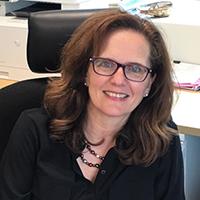
Michael E. Barish, Ph.D. Professor
At the Intersection of Neurobiology and Immuno-oncology
Our laboratory is applying a developmental neurobiology approach to study of tumorigenesis in brain and cellular heterogeneity in glioblastoma, including design of chimeric antigen receptor (CAR) T cell immunotherapies against novel tumor antigens. We are also employing organoid and organotypic culture models to better understand adaptive reactions of brain tumors to the selection pressures imposed by immunotherapies in the context of normal brain tissue.
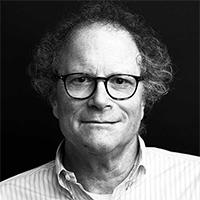
Karen S. Aboody, M.D. Professor
Translational Research - Neural Stem Cell as Delivery Tool for Cancer Treatment
Dr. Aboody oversees a translational research laboratory focused on using neural stem cells (NSCs) as a platform for targeted delivery of anti-cancer agents to invasive and metastatic solid tumors. Therapeutic cargo explored to date includes: pro-drug converting enzymes, therapeutic proteins (interleukins, anti-angiogenic proteins, antibodies), oncolytic viruses, stimuli-responsive nanoparticles, and exosome-encapsulated oligonucleotides. Ongoing are first-in-human NSC-mediated enzyme/prodrug and oncoviral therapy trials for patients with glioblastoma.
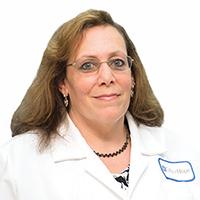
Qiang Lu, Ph.D. Professor
Regulation of Neural Progenitor Cell Proliferation and Differentiation in Brain Development and Tumor Formation
Dr. Lu’s research is aimed at understanding the genetic and epigenetic mechanisms that control proliferation vs. differentiation decisions of neural progenitor cells in the developing cerebral cortex. His group is also applying the knowledge gained from these studies to develop novel preclinical models and therapeutics for brain tumors.
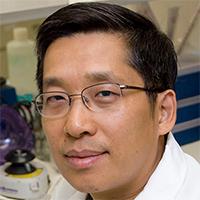
Margarita Gutova, Ph.D. Research Associate Professor
Regenerative medicine for Traumatic Brain Injury
Dr. Gutova’s research program is focused on the integration of regenerative medicine approach from bench-to-bedside directed to improve neurobehavioral recovery and learning after experimental traumatic brain injury (TBI). Her lab is utilizing a neural stem cell in combination with environmental enrichment to restore function and/or attenuate TBI-induced deficits. Dr. Gutova is utilizing 3D culture organoid models and precision medicine approach to develop personalized treatments for patients with brain injury and tumors.
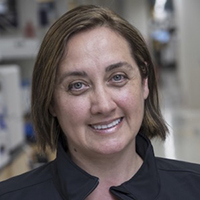
Paul Salvaterra, Ph.D. Professor Emeritus
Molecular Neurobiology
Dr. Salvaterra is interested in identifying underlying mechanisms responsible for neurodegenerative diseases such as Alzheimer’s (AD). No existing AD animal models exhibit clear chronic progressive neurodegeneration an understudied disease phenotype. His lab has developed a human embryonic stem cell model which exhibits Abeta42-dependent neurodegeneration (TALEN editing of one allele of the amyloid precursor protein to directly express Abeta42 peptide). Parallel editing to express Abeta40 peptide does not show neurodegeneration. These cell lines can thus be used to uncover unknown mechanisms of Abeta42 dependent AD-like neurodegeneration in a human genetic context and test potential neurodegenerative blocking treatments.
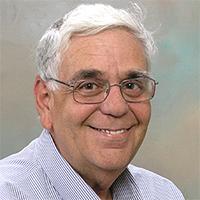
June-Wha Rhee, M.D., Assistant Professor of Medicine
Assistant Professor, Department of Stem Cell Biology and Regenerative Medicine
Tackling Cardio-Oncology with Human iPSCs and Genomics
Our research focuses on understanding the biology underlying cancer therapy-induced cardiovascular complications by leveraging human-induced pluripotent stem cells (iPSCs) as well as patient samples, genomics and leading-edge computational biology. Emerging data suggest that cardiovascular complications related to these therapies can cause treatment interruptions and lead to worse oncologic and cardiovascular outcomes. Therefore, there is a critical need to better understand 1) why and through what mechanisms the cancer therapy-related cardiotoxicity occurs, 2) who is at risk and 3) how to mitigate or prevent this toxicity. Our lab is working toward addressing these questions so that cancer patients can safely be treated with life-saving cancer therapies. Specifically, we believe metabolism and biologic aging are critical in modulating this risk and are working to define their roles by leveraging genome editing technology, multi-omics and advanced bioinformatics utilizing patient-specific iPSCs and patient samples.

Steven Smith, Ph.D., Professor Emeritus, Department of Stem Cell Biology and Regenerative Medicine
Beginning with work in the 80’s and 90’s my lab discovered the enzymology of human DNA methyltransferases was uniquely suited for a role not only in somatic inheritance of methylation patterns but also for a role in DNA repair at sites of unusual DNA structure. De novo methylation at mispairs, sites of deoxy8oxoG formation, deoxyuracil formation and holdback structures at the fragile X repeat were all demonstrated in vitro. Moreover, the enzymes stall at these sites and bind tightly to them in vitro. Since that time, my work has focused on the role of non-B structures in epigenetics, where recent work has shown the i-motif structure can be particularly mutagenic in human DNA. Quadruplex DNA frequencies track the CG site frequencies throughout the vertebrates and our most recent work shows that sequences with the potential for mutagenesis through the formation of foldbacks, triplexes, G-Quadruplexes and i-motifs have been minimized in long lived vertebrates.
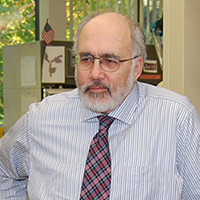
Mohamed Hammad, Ph.D., Assistant Research Professor, Department of Stem Cell Biology & Regenerative Medicine
Mohamed Hammad received his Ph.D. from the University of Mississippi at Oxford. His graduate studies focused on improving cell therapy for neurodegenerative disease applications using materials-based systems to improve post-transplantation survival of neural stem cells (NSCs). He joined the laboratory of Karen Aboody, M.D., at City of Hope to complete his postdoctoral training, where he developed a strategy to improve the tumor-selective distribution of oncolytic viruses. The idea involved using Dr. Aboody’s tumor-tropic NSC line to localize oncolytic viruses in tumors, avoiding off-target deposition. He has since led two clinically relevant projects that use NSCs to improve the delivery of an oncolytic virus to lung and ovarian cancers. He is also interested in developing stem cell-derived CAR immune cells for lung cancer and neuroendocrine neoplasms.
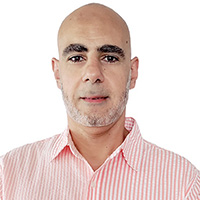
Dr. Mooney received her Ph.D. from University of Colorado at Boulder. Her graduate studies focused on improving cell therapy for neurodegenerative disease applications using materials-based systems to improve post-transplantation survival of neural stem cells (NSCs). She joined Dr. Aboody’s laboratory at City of Hope to complete her post-doctoral training, where she developed a strategy to improve the tumor-selective distribution of chemotherapeutics. The idea involved using Dr. Aboody’s tumor-tropic NSC line to localize drug-loaded nanoparticles at tumors, avoiding off-target deposition. She has since led two clinically relevant projects that use NSCs to improve delivery of an oncolytic virus: 1) generating preclinical data that resulted in FDA approval for multiple-round, intracranial administration of this treatment for glioma patients (IND # 19532); and 2) generating IND-enabling dose regimen data needed to translate this treatment to ovarian cancer patients by 2024.
